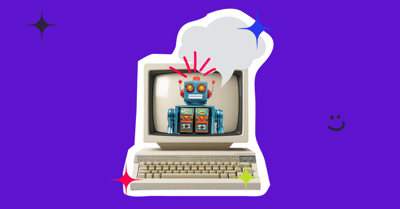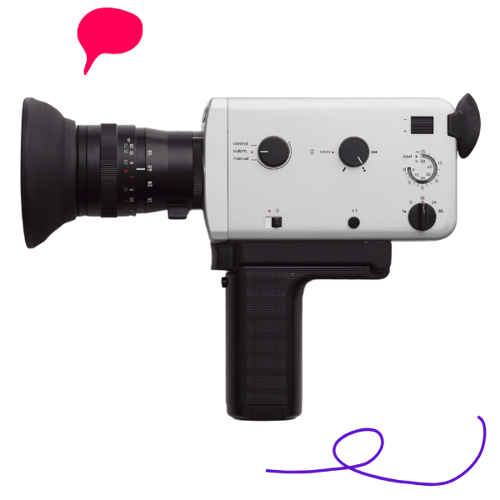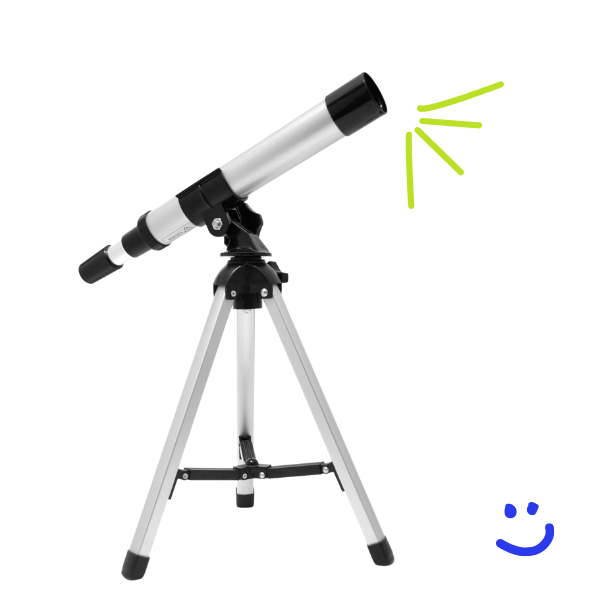The AI Playbook for B2B Marketing, Content & Tech
B2B marketing is at a turning point. (A really good one. Promise!)
For years, we've honed our strategies, refined our tactics and embraced digital transformation. Now, we face a disruption unlike any other: Artificial Intelligence (AI). This isn't just another trend; it's a fundamental shift in how we create, distribute and analyze our marketing efforts.
Let's be clear: AI isn't here to replace B2B marketers. It's here to augment our abilities, to become our most powerful ally.
AI can provide a solid foundation, allowing us to focus on what we do best: editing, refining, cutting through the noise and making truly strategic decisions. (Think of it as your first draft assistant. It gets you to a starting line faster, so you can focus on cutting through the noise and making strategic moves.) The key is to master this technology, to harness its potential and not let this transformative opportunity pass us by.
For the past decade, the industry has been oversaturated with webinars, ebooks, videos and the same rinse-and-repeat tactics. While we’ve all been leveling up in getting smarter and better with our approaches, we’re not due to see any major disruptors for a long time — except for the one currently at our fingertips.
B2B has a MASSIVE opportunity right now to optimize content and get some major “wins” to re-set the stage for how buyers (and everyone else, frankly) can get their content. So use this opportunity wisely! Make smart decisions, and let's get marketing.
Psst! Want a link of this sent to you?
Happy to oblige — just fill out the form and star it when it arrives, and you're set for life. (Or for as long as you keep your inbox organized! 😉)
An Application For Your New Marketing Bestie
AI is no longer futuristic — it’s a present-day reality, permeating every aspect of marketing.
While we’re going to deep-dive into tools that will keep every single part of your day to day, we also want to cover the go-to heavyweights. LLMs and generative AI are powerful assets for boosting efficiency and effectiveness across various functions.
They can rapidly generate diverse marketing content, personalize customer interactions and outreach, analyze market trends for deeper insights, optimize content for SEO and automate repetitive tasks, ultimately freeing up marketers to focus on strategic initiatives and drive better results, though careful oversight is essential to ensure content quality, brand consistency and data privacy.
AI can support nearly every part of your marketing strategy, but not every tool is created equal; understanding their unique strengths is crucial for effective implementation. These ones below offer a range of capabilities that can be applied across various marketing functions, from content creation to data analysis.
Gemini (Google)
Google's multimodal model, Gemini excels at complex reasoning and understanding diverse data types, including text, code, images and more.
It's particularly useful for tasks that require a holistic understanding of information.
- Multimodal: Yes (text, image, video, audio)
- Strengths: Deep integration with Google Workspace (Docs, Gmail, etc.), fast and efficient
- Platforms: Web (gemini.google.com) Android integration (replacing Google Assistant)
tl;dr: Best for SEO-savvy content, research and Google ecosystem integration.
ChatGPT (OpenAI)
OpenAI's ChatGPT is renowned for its conversational AI capabilities.
It's adept at generating human-like text, making it valuable for drafting marketing copy and creating engaging content.
- Multimodal: Yes (text, image, code, data analysis)
- Strengths: Versatile, plugins/tools, integrates with web, code interpreter, image input/output, memory
- Platforms: Web, iOS, Android, API (via OpenAI or Microsoft Azure)
- Special Version: Custom GPTs (user-tailored assistants)
tl;dr Great for ideation, drafting content and turning briefs into polished copy.
Perplexity AI
Perplexity AI distinguishes itself by providing answers with sourced information.
This makes it an invaluable tool for research-driven marketing tasks, ensuring accuracy and credibility.
- Focus: AI-powered search + conversation
- Strengths: Live web results, citation-based answers, clean UI
- Multimodal: Basic (primarily text and web)
- Use Case: Alternative to traditional search + research assistant
tl;dr Use it like a research assistant, complete with citations and summaries.
Claude (Anthropic)
Anthropic's Claude is designed with a focus on being helpful, harmless and honest.
It's known for its longer context window, enabling it to handle more complex and nuanced conversations.
- Multimodal: Limited image capability
- Strengths: Very good at reasoning, long context window, alignment-focused
- Platforms: Web (claude.ai), API via Amazon Bedrock
tl;dr Excellent for handling longer content and nuanced strategy work.
Copilot (Microsoft)
Microsoft's CoPilot integrates directly into development environments, such as Visual Studio.
It assists with code generation, understanding and debugging, streamlining the technical aspects of marketing technology. (This is powered by OpenAI’s GPT models.)
- Multimodal: Yes, depending on product
- Strengths: Seamless integration with Microsoft 365 (Word, Excel, Outlook), developer tools like GitHub Copilot
- Platforms: Office apps, GitHub, Azure
tl;dr Perfect for teams working inside the Microsoft 365 suite.
Content Creation: From Blank Page to Breakthrough Ideas
We’ve talked about this at length, and we’re going to do it over and over and over (AND OVER!) until you listen to us — B2B marketers need to stop gatekeeping content. Our B2C counterparts are absolutely crushing it with content, especially when it comes to visibility in AI search because their stuff is easy to find, read and share.
We’ll touch more on that overall theme in the SEO section of this post but just wanted to flag it because you need to understand that AI and content are now basically making friendship bracelets every step of the way.
For now, let’s focus solely on content.
And the fact that it is the lifeblood of what we do in B2B marketing. AI’s here to revolutionize how we create it, offering unprecedented opportunities to scale production, personalize messaging and enhance engagement.
How To Use AI In B2B Content Marketing (Process & Drafting Tips!)
AI is transforming content creation in several key ways, reshaping how marketers approach everything from ideation to personalization.
At the beginning of the process, AI can assist with brainstorming topics, generating outlines and identifying content gaps, helping ensure that the overall content strategy remains both comprehensive and relevant, and when it comes to drafting, AI speeds up production by creating initial versions of blog posts, articles and marketing copy—allowing marketers to focus on higher-level strategy and creative direction.
Once a draft is complete, AI tools can support editing and proofreading by refining content, checking for grammar and style issues and ensuring consistency with brand voice. This not only maintains a polished and professional tone but also streamlines the review process.
In addition to content creation, AI can analyze audience data to personalize content for specific segments, making messaging more relevant and ultimately increasing engagement.
While AI can automate many aspects of content creation, it's crucial to maintain brand voice, factual accuracy and a human touch for all steps of writing, editing and guidance.
AI should be seen as a collaborator, not a replacement for human creativity and expertise.
Tools To Try
- Jasper is a dedicated AI writing assistant that helps marketers generate high-quality copy for various purposes, including website content, blog posts and marketing materials.
- Similar to Jasper, Copy.ai provides a suite of AI-powered tools for creating marketing copy, product descriptions and other types of content.
- HyperWrite focuses on accelerating the writing process by providing suggestions, completing sentences and generating paragraphs.
- Remember, like we talked about at the start, that tools like ChatGPT, Gemini and Claude can also be used to generate content.
Recommended Reading

Wake Up, B2B! B2C Is Way Ahead With AI Content
B2B companies are way behind the curve when it comes to AI-powered content, and you know what? AI is noticing.

Interactive Content for Every Stage of the Buyer's Journey
Cut through the noise and generic marketing messages with engaging content that resonates with your buyer.

Google NotebookLM: The AI Productivity Boost for B2B
This tool from Google is like having a super-smart research assistant who lives inside your Google Workspace.
Search Has Evolved — Has Your Strategy?
Previously, you thought of SEO as a way to start a post for keyword optimization and meta description optimization and oh, yeah, I guess, it’d be pretty cool if AI could help make it easier so you could do that faster but you’re getting SO MUCH MORE NOW.
Our B2C counterparts are winning because they’re making their content easy to find, read and share. AI is making it even easier to do that at scale.
Search is changing faster than most marketers can keep up with. Traditional SEO rewarded consistency and keyword targeting. AI search is dynamic, contextual and optimized for how real people talk.
What Happened: B2B Broke Search
B2B marketers have been writing for Google, not for humans. But AI is changing how search works — and fast.
Traditional SEO rewarded consistency and exact keyword targeting. Now, AI-powered search is dynamic and conversational, built to understand how real people ask real questions. That’s why queries like “Why is someone clicking my email but not booking a meeting?” don’t get answered by cookie-cutter posts like “Top Email Conversion Tips.”
While B2C marketers are already adapting, many in B2B are still stuck in the old model. The fix? Write for humans. Answer real questions in plain language. Create content that’s genuinely useful. And meet your audience where they are — not where you hope Google might put them.

To succeed in the era of AI-powered search, B2B marketers must adapt their SEO strategies to prioritize natural language, user intent and high-quality, trustworthy content. Specifically, AI is impacting:
- Semantic Search: AI is shifting search from keyword-based to meaning-based. Search engines now prioritize understanding user intent, requiring marketers to create content that addresses underlying needs and questions.
- SERP Evolution: AI is changing search engine results pages (SERPs) with featured snippets, knowledge graphs and AI-powered answers. This necessitates optimizing content for these new formats and prioritizing concise, accurate information.
- E-E-A-T: Google's E-E-A-T (Experience, Expertise, Authoritativeness and Trustworthiness) guidelines are more critical than ever. AI-driven search prioritizes high-quality content from reputable sources, making it essential for B2B marketers to demonstrate credibility.
- Content Optimization: AI can help optimize content for natural language queries, improve relevance and ensure it aligns with user intent. Tools like Frase analyze top-ranking content and provide recommendations for improving performance.
- Competitive Analysis: AI can be used to analyze competitor content, identify opportunities and uncover successful strategies.

Want to optimize your content for AI search?
We can help. Contact Unreal Digital Group. 🤗
A Video’s Worth A Million Words
Visual content is paramount for capturing attention, conveying complex information and reinforcing brand messaging. Artificial intelligence (AI) is revolutionizing how marketers create compelling and effective visuals, from static images to dynamic videos.
AI is significantly enhancing visual content creation in several key areas:
- Image Generation: Tools like DALL-E, Midjourney and Stable Diffusion empower marketers to generate custom images for marketing materials. This provides a cost-effective alternative to traditional stock photos and custom illustrations.
- Brand Consistency: AI can analyze existing brand assets and generate new visuals that adhere to established guidelines, ensuring visual brand consistency across diverse channels.
- Accessibility: AI can improve the accessibility of visual content by automatically generating alt text for images, making them accessible to users with visual impairments.
Popular design platforms like Canva are integrating AI features to assist with various visual content creation tasks, further democratizing design capabilities.
Video has become an indispensable medium for B2B marketing, offering a dynamic and engaging way to connect with audiences. AI is streamlining video production, optimizing content and enhancing the viewing experience.
How can AI help with video marketing?
- Video Creation: AI can automate various aspects of video creation, from scriptwriting and storyboarding to editing and post-production, significantly reducing production time and costs.
- Video Optimization: AI can optimize videos for different platforms and audiences by analyzing viewer behavior, identifying key moments and suggesting improvements to content and delivery.
- Video Analysis: AI can be used to analyze video performance, track viewer engagement and identify areas for improvement, providing valuable insights for refining video strategy.
AI-powered tools are making video creation more accessible, efficient and effective for B2B marketers.
Platforms like Vyond (for instant explainer videos in multiple styles), Lumen5 (for transforming text into video) and OpusClip (for repurposing long-form content into short clips) exemplify how AI is enabling marketers to leverage the power of video to drive engagement and achieve their marketing goals.

Smarter Email Marketing Messages, Better Results
Email isn’t dead — it’s evolving. For B2B marketers, it’s still one of the highest-performing channels for nurturing leads, engaging customers and driving conversions. But inboxes are more crowded than ever, and generic batch-and-blast emails just don’t cut it anymore.
That’s where AI comes in.
AI is redefining what’s possible in email marketing by helping teams move faster, get more personal and make smarter decisions. Instead of manually building lists or guessing at subject lines, marketers can use AI to create high-performing campaigns that adapt to audience behavior in real time.
AI can help you draft subject lines and body copy, personalize messaging at scale, optimize send times and frequencies and generate message variations for different personas, buyer stages and tones.
This isn’t about writing one email — it’s about creating an ongoing, data-informed conversation.
How to use AI in B2B email marketing:
- Personalization: AI can analyze customer behavior, preferences and intent to tailor subject lines, content and offers that resonate with each recipient — increasing open rates and conversions.
- Automation: From triggered sends to full drip campaigns, AI-powered automation streamlines execution. For example, HubSpot uses AI to recommend the next best email in a sequence or suggest follow-up content based on recipient behavior.
- Optimization: AI can test and refine subject lines, analyze the best send times and fine-tune content based on engagement patterns. Klaviyo uses predictive analytics to identify when someone is most likely to open or click — helping you reach them at just the right time.
- Segmentation: AI goes beyond basic demographic filters by clustering audiences based on behavior, purchase history and engagement levels, allowing for highly relevant messaging at scale.
Leading platforms like HubSpot and Klaviyo are embedding AI into their email tools to make workflows more efficient and results more predictable. Standalone tools like Seventh Sense take it a step further by using behavioral data and machine learning to optimize send times and improve deliverability — especially useful for teams managing high-volume outreach.
From AI-generated content suggestions to real-time personalization, these capabilities are helping B2B marketers deliver the right message to the right person — at exactly the right moment.
AI That Speaks Fluent LinkedIn (and Everywhere Else)
Most B2B marketing teams spend hours planning, creating and optimizing social content—an effort that’s necessary, but not always efficient. Social media is a vital channel for B2B marketers looking to drive awareness, establish thought leadership and build trust across long sales cycles. AI doesn’t just make the process faster—it makes it smarter.
From content planning and creation to community engagement and ad performance, AI is reshaping how B2B marketers approach social media. Instead of manually repurposing blog posts or chasing the next best posting time, AI tools can handle the heavy lifting, freeing teams to focus on strategy and storytelling.
Take tools like Lately.ai, which transforms long-form content—like webinars, blog posts and videos—into dozens of social-ready snippets. Or Predis.ai, which generates posts and visuals based on a single input, streamlining creation without sacrificing quality. Canva now offers AI-assisted features that make it easy to scale branded templates across campaigns, while Heyday by Hootsuite adds conversational AI to your customer support workflows, improving response time and personalization on social.
AI is transforming B2B social media in four key areas:
1. Content Planning
AI identifies trending topics, suggests optimal posting times and analyzes competitor strategies to improve reach and timing.
2. Content Creation
It generates post copy, captions and visuals at scale—ensuring consistency and freeing creative teams to work on high-value content.
3. Community Management
With social listening, sentiment analysis and AI-powered chat, brands can respond faster and engage more authentically.
4. Advertising
AI helps optimize targeting, bidding and performance tracking, ensuring every ad dollar works harder and reaches the right audience.
For B2B marketers, this shift means it’s time to adopt a more open, distributed content strategy. Instead of limiting social to a handful of thought leadership posts, AI allows teams to repurpose and distribute content across multiple platforms, at scale. That reach matters—especially when your buyers aren’t always on LinkedIn and influence often starts long before the first touchpoint.
🚨Pro Tip: Stop with the “Click the link in our bio” stuff. Publish actual value on-platform. Put your full insights on LinkedIn, Quora, Pinterest — anywhere AI can find it. 🚨
One thing you might not be thinking about: In B2B, we’ve been gatekeeping forever. Hiding our content behind forms and in small circles, and it’s been killing our content reach while our B2C counterparts have been thriving. It’s time we take a page from their playbook and open up our content to other avenues. (It’s what we talked about in the SEO section of this post!)
Lead Generation & Qualification: From Cold Leads to Hot Insights
One of the biggest challenges in B2B marketing isn’t generating leads—it’s figuring out which ones are actually worth your sales team’s time. Without proper qualification, marketing passes over a list of names; with it, they hand off real opportunities. That’s where AI is making a big impact.
AI is transforming lead generation and qualification, helping marketers cut through the noise and focus on leads that are more likely to convert. Here’s how it’s reshaping the process:
- Smarter Lead Scoring: AI looks beyond the basics, analyzing everything from job titles and company size to digital body language to rank leads more accurately.
- Predictive Insights: Instead of guessing who’s likely to convert, AI predicts it—so sales teams can zero in on the hottest prospects and stop wasting time on dead ends.
- Always-On Chatbots: AI-powered bots engage visitors in real time, answering questions and qualifying leads around the clock—no more missed opportunities.
- Hyper-Personalized Outreach: AI helps craft messages that speak directly to a lead’s needs and interests, making emails feel more like conversations than cold calls.
- Data Enrichment on Autopilot: AI fills in the blanks, pulling in firmographic and social data so you get a fuller, richer picture of who you're talking to.
When marketing uses AI to hand over well-qualified, high-intent leads, sales can do what they do best—close. That tighter alignment means shorter sales cycles, higher conversion rates and a smoother path from interest to revenue.
Marketing Automation & Personalization: Let AI Map the Journey
Personalization used to mean plugging in a name. Today, AI empowers marketers to deliver true buyer-led journeys that adapt in real time—based on behavior, timing and interest. This is more than personalization; it's precision engagement at scale.
AI is transforming marketing automation and personalization in key ways:
- Buyer-Led Journeys: AI tailors the entire experience—what content is delivered, when it’s delivered and through which channel—based on each user’s behavior and stage in the journey.
- Dynamic Content Creation: AI tools generate and serve content that evolves with a prospect’s interests, ensuring relevance at every touchpoint.
- Predictive Marketing: AI forecasts future behavior, enabling marketers to optimize campaigns and proactively address customer needs.
- Smarter Attribution: AI improves attribution modeling by accurately tracking and analyzing the performance of different touchpoints across complex B2B journeys.
These advancements mean that B2B marketers can now offer tailored experiences that feel one-to-one—even when scaled across hundreds or thousands of accounts.
Recommended Tools
- HubSpot with Breeze: AI-driven content generation and journey mapping help teams automate while keeping messaging personalized and timely.
- Salesforce Marketing Cloud Account Engagement (Pardot): Offers predictive segmentation, lead scoring and campaign optimization powered by AI.
- Adobe Marketo Engage: Uses behavior-driven automation and AI-based personalization to enhance engagement and measure impact more effectively.
Real-World Use Case 💡
Don't just personalize what someone receives—personalize when and how they receive it.
Whether it's a timely email, a customized landing page or a well-placed retargeting ad, AI ensures every touchpoint feels intentional and relevant...
Insights That Think Ahead in Your Analytics
AI-powered analytics tools don’t just report — they advise. Instead of sifting through static dashboards, marketers can now ask nuanced questions like, “What content is resonating with mid-funnel buyers in finance this month?” and get real, actionable answers.

AI is transforming the way B2B marketers work with data. From uncovering unseen trends to recommending next steps and forecasting performance, these tools provide a deeper, more dynamic understanding of what’s happening — and what’s likely to happen next.
Predictive analytics help forecast customer behavior and marketing outcomes, so teams can make smarter, faster decisions. AI-driven customer segmentation reveals hidden patterns and enables more personalized, precisely targeted campaigns. And anomaly detection surfaces outliers in real time, alerting marketers to issues or opportunities before they snowball.
Even unstructured data like social posts, customer feedback and survey responses can now be parsed through natural language processing, unlocking insights that were once difficult to quantify. Combined with smarter data visualization, these advances give marketers not just clearer views of their performance — but the power to shape it proactively.
This is the future of dashboards — insights on demand, powered by AI that understands your goals as well as your data.
Conclusion: Use the Tools, Keep the Edge
You don’t need to become an AI engineer. You just need to be an AI-enabled marketer.
Use AI to move faster, test smarter and personalize better — without losing your edge or your judgment.
The integration of AI into B2B content, marketing and technology is no longer a question of "if" but "how." By embracing these powerful tools and adapting our strategies, we can unlock unprecedented opportunities to enhance efficiency, personalize experiences and drive meaningful results.
Recommended Reading

Unleash the Power of AI Agents for Explosive Growth
AI agents are rapidly changing the B2B marketing landscape and early adopters are seeing incredible results.

What Are The Best AI Agents For B2B Marketing?
We all know B2B marketing isn’t exactly simple. As such, your tools need to be smart, not just automated.

The Power of Gems in Gemini: Your Guide to Effortless AI Workflows
These powerful tools can automate your workflows, simplify complex tasks and help you achieve more in less time.
THE FUTURE OF MARKETING IS INTELLIGENT
Embrace AI & Transform Your B2B Marketing
We're ready when you are.